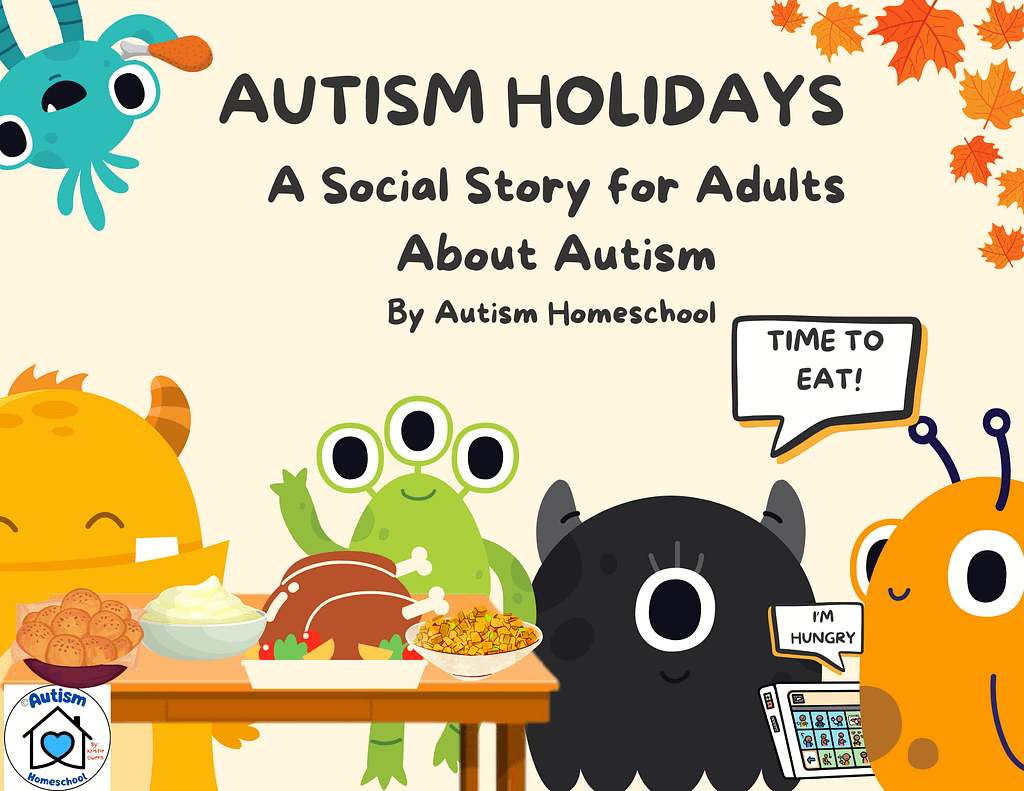Preparing for the holidays with a special needs child can require extra planning to ensure a smooth and enjoyable experience for everyone. Here are several strategies to help your child feel more comfortable and engaged during this busy season.

Create a Predictable Routine
Holidays often disrupt daily routines. A visual schedule that outlines upcoming events (like trips, family gatherings, or special activities) can help your child anticipate what’s coming next and reduce anxiety.
Prepare for Changes in Routine
Explain any changes in the schedule ahead of time, and use visual or social stories to help your child understand what to expect.
Plan for Sensory Sensitivities
Holidays often come with bright lights, loud music, and crowds. Try to create a quiet space for your child to retreat to when they feel overwhelmed. Consider using noise-canceling headphones, sunglasses, or other sensory aids.
Decorations
Some children may be sensitive to the sensory overload of decorations. You might want to keep certain decorations minimal or choose softer, less stimulating options.
Holiday Foods
If your child has food sensitivities or limited dietary preferences, it’s helpful to bring familiar snacks or meals to gatherings.
Prepare for Social Interactions
Set Expectations for Social Situations:
Holiday gatherings can be overwhelming with the number of people and different social expectations. Preparing your child by explaining who will be at events, what activities will take place, and any family traditions can help them feel more comfortable.
Practice Social Skills:
If your child has difficulty with greetings, conversation, or sharing, it might help to role-play these scenarios before gatherings.
Communicate the Need for Breaks:
Let family and friends know that your child might need breaks or time alone. It’s important that everyone understands and respects this.
Gifts
Focus on Their Interests:
Choose gifts based on your child’s specific interests and sensory preferences. Familiar, favorite toys or books are often a good option, but consider introducing new things slowly.
Provide Predictability with Gifts:
If your child struggles with surprises, you might want to give them a preview of their gifts ahead of time or involve them in the gift-wrapping process.
Respect Personal Boundaries:
Some children may not enjoy the physical act of receiving or unwrapping presents. Allow them to open gifts at their own pace, or assist them in a way that feels comfortable.
Minimize Overstimulation
Limit the Length of Celebrations:
Long events can be overwhelming, so it’s okay to shorten your time at social gatherings. If possible, try to leave early or have a quiet time before rejoining festivities.
Be Mindful of Music and Noise:
Loud or constant background noise can trigger sensory overload. Pay attention to how your child reacts to music, conversations, or holiday sounds and adjust accordingly.
Foster Positive Family Interactions
Communicate with Family and Friends:
Let others know about your child’s needs and preferences so that they can be understanding and supportive. This can help reduce pressure on your child during interactions.
Prepare for Expectations Around Behavior:
Make sure everyone is aware that your child’s behaviors (such as stimming or needing time alone) are simply part of who they are, and not a cause for concern.
Be Flexible and Patient
Stay Flexible:
Things may not go exactly as planned, and that’s okay. If something isn’t working, be open to adjusting your expectations or trying something different.
Embrace Imperfection:
Holidays don’t have to be perfect. The goal is to create meaningful, enjoyable moments together, even if they look different than what you may have envisioned.
These proactive steps, along with a flexible, patient approach can help ensure that your child feels safe, understood, and included during the holidays.
Here are some free social stories to help! This year we have a brand new one too! Download for free below:
Love & Co. Therapeutic Interventions
referrals@loveandcompanytherapies.com
☎ 1 (941) 557-3881
☎ 1 (941) 264-8641
Follow us on Facebook and Instagram!
If you like our resources, please like and share our pages!

Leave a Reply